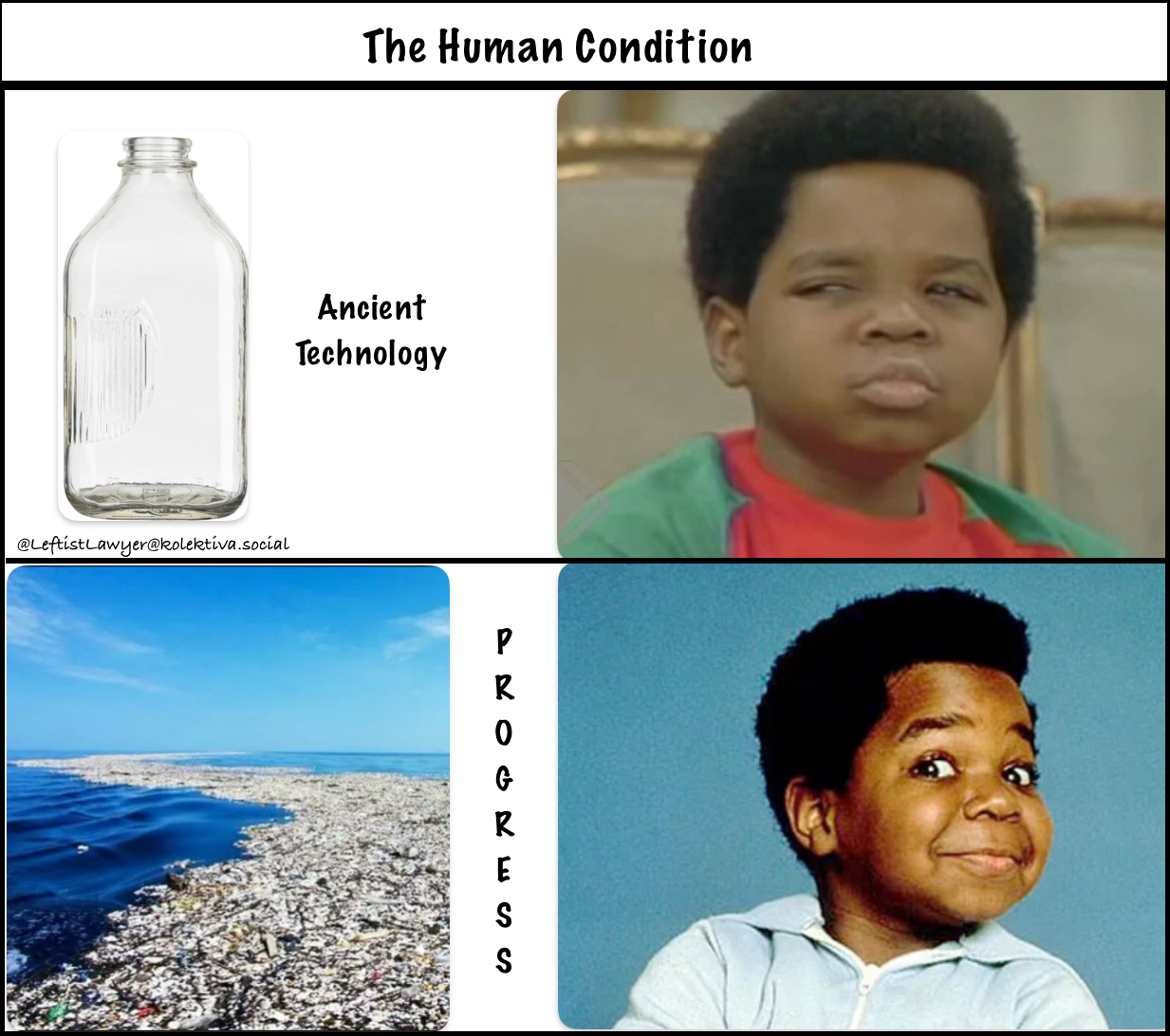I think it's worth pointing out here that there are some major downsides to glass.
Weight. Glass is heavy, more weight means more energy (and emissions) required to transport it, and a lower product mass to packaging mass ratio.
Durability. Glass bottles have to be much thicker than plastic bottles to achieve the same strength, which means thicker glass and/or additional packaging is required to get the product to the consumer.
It would be interesting to see the total life cycle emissions for packaging types, and to figure out how many re-uses (if any) are required for a glass bottle to offset its pollution footprint compared to a disposable vs recycled plastic bottle.
I can't really advocate for plastic/aluminum/glass packaging, since I'm not aware of a study the considers the total footprint for each.
Ideally, we'd purchase our own containers, and then fill our own containers from a local bulk supply. Minimizing the weight and distance traveled while maximizing re-use is key.
